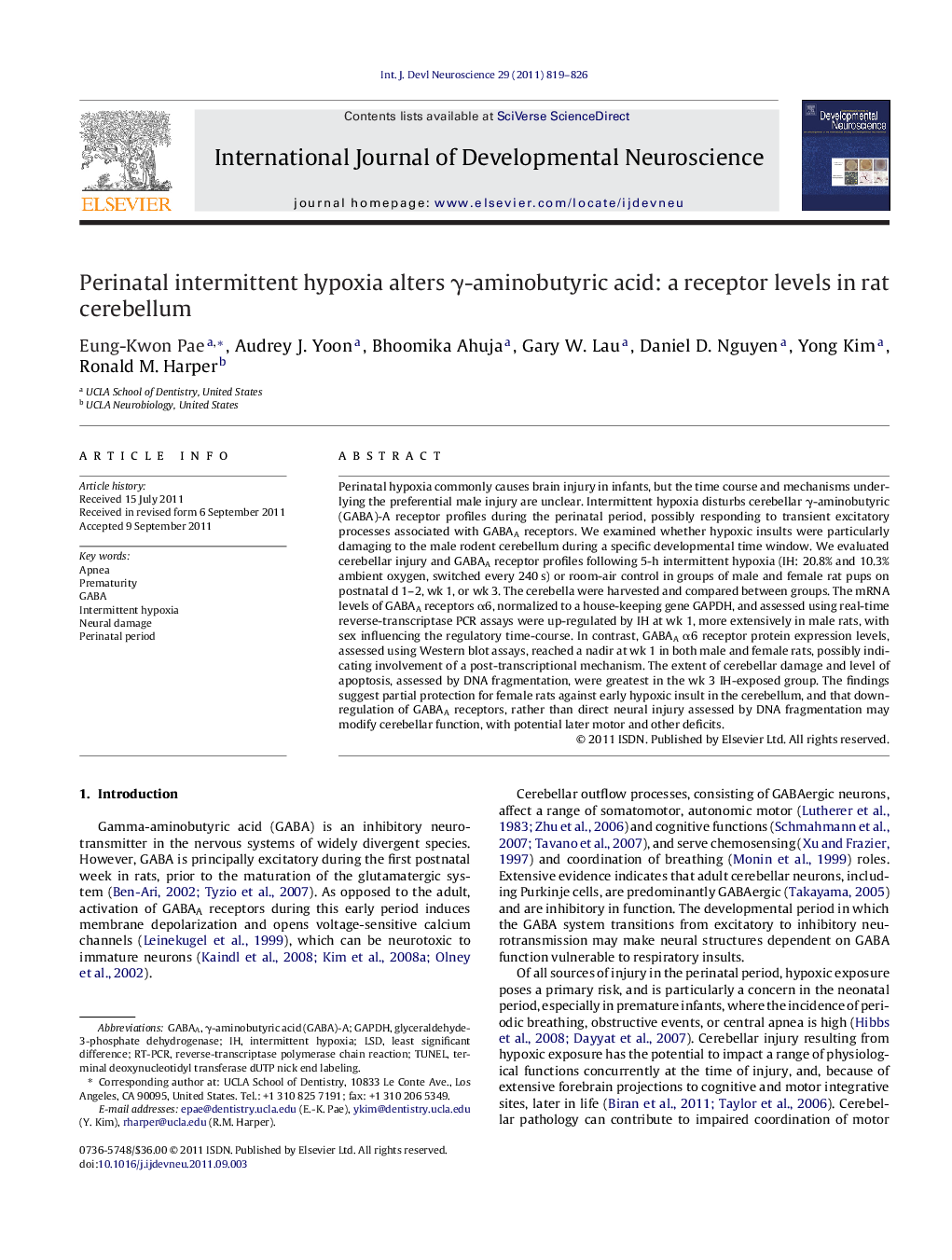| Article ID | Journal | Published Year | Pages | File Type |
|---|---|---|---|---|
| 2786312 | International Journal of Developmental Neuroscience | 2011 | 8 Pages |
Perinatal hypoxia commonly causes brain injury in infants, but the time course and mechanisms underlying the preferential male injury are unclear. Intermittent hypoxia disturbs cerebellar γ-aminobutyric (GABA)-A receptor profiles during the perinatal period, possibly responding to transient excitatory processes associated with GABAA receptors. We examined whether hypoxic insults were particularly damaging to the male rodent cerebellum during a specific developmental time window. We evaluated cerebellar injury and GABAA receptor profiles following 5-h intermittent hypoxia (IH: 20.8% and 10.3% ambient oxygen, switched every 240 s) or room-air control in groups of male and female rat pups on postnatal d 1–2, wk 1, or wk 3. The cerebella were harvested and compared between groups. The mRNA levels of GABAA receptors α6, normalized to a house-keeping gene GAPDH, and assessed using real-time reverse-transcriptase PCR assays were up-regulated by IH at wk 1, more extensively in male rats, with sex influencing the regulatory time-course. In contrast, GABAA α6 receptor protein expression levels, assessed using Western blot assays, reached a nadir at wk 1 in both male and female rats, possibly indicating involvement of a post-transcriptional mechanism. The extent of cerebellar damage and level of apoptosis, assessed by DNA fragmentation, were greatest in the wk 3 IH-exposed group. The findings suggest partial protection for female rats against early hypoxic insult in the cerebellum, and that down-regulation of GABAA receptors, rather than direct neural injury assessed by DNA fragmentation may modify cerebellar function, with potential later motor and other deficits.
► A transient perinatal hypoxia insults the cerebellum of rats and the influence remains at least until 3 wk. ► The intermittent hypoxic damage at postnatal wk 1 decreases the amount GABAA α6 receptor protein in the cerebellum compared to those insulted at wk 3. ► This consequence affects males more than females.
